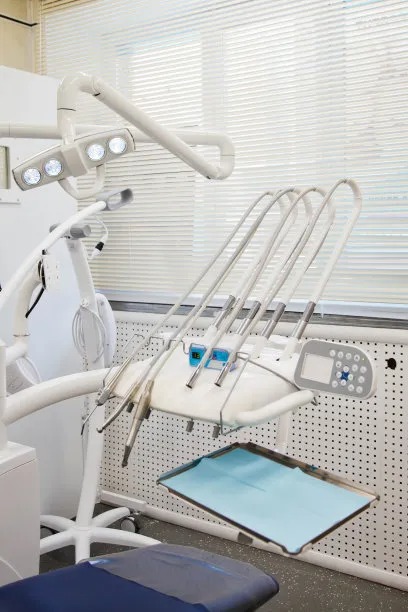Summary: Dental fillings are a common dental procedure aimed at restoring the function and integrity of a tooth that has been damaged due to decay. To ensure optimal oral health maintenance, it is essential to take specific precautions before and after getting a dental filling. This article explores four key areas: understanding the types of fillings, preparing for the dental procedure, post-treatment care, and maintaining overall oral health. Each section provides valuable insights and tips to help individuals safeguard their dental health throughout the filling process.
1. Understanding Different Types of Dental Fillings

Before undergoing a dental filling procedure, it is essential to familiarize yourself with the various types of fillings available. Common options include amalgam, composite resin, porcelain, and glass ionomer. Each material has its pros and cons regarding durability, aesthetics, and cost. For instance, amalgam fillings are known for their strength and longevity, making them suitable for the back teeth where pressure from chewing is highest.
On the other hand, composite resin fillings are favored for their natural appearance, blending seamlessly with the tooth color, thus enhancing aesthetic appeal. However, they may not last as long as amalgam fillings. In contrast, porcelain fillings offer great durability and are also aesthetically pleasing, making them an excellent choice for visible teeth but at a higher cost. Understanding these differences enables you to make an informed decision tailored to your dental needs.
After selecting a type of filling, it is crucial to discuss the option with your dentist. They can provide guidance based on your specific dental condition, the extent of decay, and your personal preferences. By understanding your choices, you can set realistic expectations for the procedure and its outcomes.
2. Preparing for Your Dental Filling Appointment
Now that you have chosen the type of filling, preparation for your dental appointment is next. One vital aspect of this preparation is ensuring good oral hygiene. Brushing and flossing your teeth before the visit helps minimize bacteria in your mouth, promoting a cleaner environment for the dental work. Additionally, maintain a healthy diet leading up to the appointment, as consuming soft foods can help reduce discomfort if you experience sensitivity after the filling.
Its also essential to communicate openly with your dentist about any concerns you may have, including dental anxiety or past experiences. Knowing what to expect during the procedure can alleviate fears and help you feel more comfortable. Ask about the steps involved, anesthesia options, and what the entire process will entail. Preparation isn’t just physical but also mental, allowing for a smoother experience.
If you are taking any medications, inform your dentist during your pre-appointment consultation. Certain medications may affect the dental procedure and pain management strategies. Your dentist will appreciate being aware of any medications you are on, ensuring they provide the best care possible during your appointment.
3. Caring for Your Dental Filling After the Procedure
Once you have undergone the dental filling procedure, proper aftercare is essential for the longevity of the filling and your overall dental health. For the first few hours, avoid consuming hot or cold foods as your mouth may still be numb. Stick to soft foods, allowing your mouth to heal without discomfort or the risk of dislodging the filling.
Maintaining good oral hygiene is crucial post-treatment. Brush and floss gently around the filled area to prevent plaque buildup. It is advisable to wait for at least 24 hours before resuming normal brushing intensity to give the filling time to set properly. Regular check-ups should also be scheduled to monitor the filling and ensure it remains in good condition.
If you experience prolonged pain, increased sensitivity, or any signs of filling wear, contact your dentist immediately. These could be indications of a problem that requires attention. Being observant about how your filling feels and functions can help you catch potential issues early, ensuring the longevity of the restoration.
4. Maintaining Overall Oral Health After Fillings
In addition to caring for the filling itself, maintaining your overall oral health is essential. Regular dental check-ups are crucial for early detection of potential issues like cavities or gum disease. During these visits, your dentist can assess the condition of your fillings and recommend treatments for overall oral health. Consulting your dentist at least twice a year is a good standard practice.
Adopting a proactive approach to your oral hygiene can dramatically reduce the risk of future dental problems. Brushing at least twice a day and flossing daily helps keep your mouth clean and limits plaque, thereby prolonging the life of your fillings. Additionally, consider using an antimicrobial mouthwash as part of your oral care routine to enhance your efforts against bacteria.
Dietary choices also play a significant role in oral health. Limit sugary snacks and beverages, as these can lead to decay even with fillings in place. Instead, opt for nutrient-rich foods that support dental health, such as fruits, vegetables, and dairy products that have calcium. A balanced diet coupled with good oral hygiene practices can significantly enhance the longevity of your dental fillings and your overall oral health.
Summary: In conclusion, it is evident that taking essential precautions before and after getting a dental filling can maximize the benefits of this common dental procedure. By understanding different types of fillings, adequately preparing for your dental visit, following post-treatment care, and maintaining overall oral health, you equip yourself with the tools needed for lasting dental success.
Taking proactive steps not only helps extend the life of your fillings but also contributes to better oral health in the long run. Remember, maintaining open communication with your dentist is key to ensuring the best possible care for your teeth. This article is compiled by Vickong Dental and the content is for reference only.
Vickong Dental
Vickong Dental is a large medical group established in Hong Kong in 2008 by professors from well-known medical universities in Guangdong and Hong Kong, as well as medical doctors from key national '985' universities (including Master's supervisors and senior professors). The chain of branches brings together expert dentists with PhDs and Master's degrees from Hong Kong and Mainland China, committed to providing high-quality dental treatment.
"Vickong Dental Practices the University Motto of 'Healing and Serving Society,' with a Stable Operation for Sixteen Years. It Has Been honored with Hong Kong Enterprise Leaders's Choice,' and is a Global Trusted Implant Center for the Nobel Implant System. Recommended by Hong Kong Metro Broadcast and Guangdong Television, it Serves Customers from Over Thirty Countries and Regions, Gaining the Trust and Favor of Citizens from the Guangdong-Hong Kong-Macau Greater Bay Area and Surrounding Cities.

Thousands of customers' unanimous praise
The most recognized and highly recommended dental service by customers in the Guangdong-Hong Kong-Macau Greater Bay Area
We Ensure You Receive Detailed Care and Attention Here
Hong Kong standards, Shenzhen prices, Your Trusted English-speaking dentists

Vickong Dental Medical-Grade Instrument Disinfection Process
Vickong Dental Medical-Grade Instrument Disinfection Process

Vickong Dental Chain: A Warm and Comfortable Environment for Treatment






Appointment Hours

Q&A
Why choose Vickong Dental?
Vickong Dental practices the university motto 「Medicine to Benefit Society」, with each branch bringing together highly qualified dentists with doctoral and master’s degrees from Hong Kong and the Mainland, and has maintained seventeen years of steady operation。Recipient of 「2024 Hong Kong Enterprise Leaders Brand」, 「2025 Hong Kong Enterprise Leaders Brand」, a Nobel Biocare Global Trusted Implant Center, and a brand recommended by Metro Radio Hong Kong and Guangdong TV。
To date, we have served customers from more than thirty countries and regions,earning exceptionally high word-of-mouth recognition and trusted recommendations from residents across the Guangdong-Hong Kong-Macao Greater Bay Area and surrounding cities
We have eight major branches in Zhuhai、Shenzhen,and a consultation and service assurance center in Hong Kong,so you can book a free consultation at any time for any questions,which is very reassuring.
If I do not accept the quotation after the CT scan, will I be charged??
No! As long as the actual treatment has not started, you will not be charged any fees.
Will there be any additional charges during the treatment process?
No, there won’t be any additional charges. Before treatment begins, we will clearly explain the treatment plan and its corresponding fees. Only after the patient agrees and signs the consent form will we proceed with the dental service.
Can I pay in Hong Kong dollars?
Yes. Vickong Dental accepts payment in Hong Kong dollars. The amount will be converted based on the exchange rate of the day, and the applicable rate will be clearly communicated to you in advance.
Can I reschedule my appointment at any time?
Yes. Please contact us via **WeChat** or **WhatsApp** as early as possible, providing your original appointment time and details, along with your preferred new date and time slot for rescheduling.













